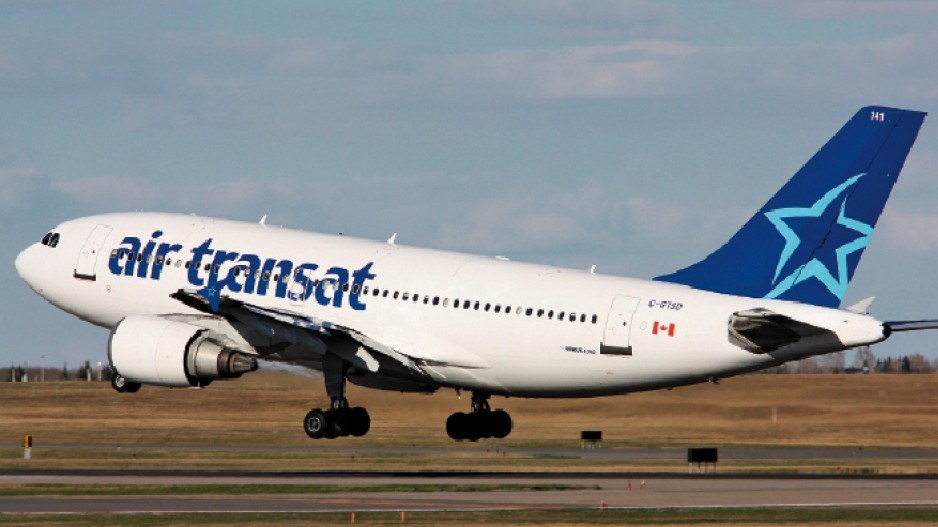B.C. consumer legislation is at the centre of eight class action lawsuits that allege airlines have unfairly profited by charging travellers fuel surcharges that are intentionally mislabelled as tax.
The latest lawsuit, against Air Transat, was filed July 3 by Poyner Baxter LLP partner James Poyner and involves Vancouver's Hasan Yildiz.
He claims that he bought a ticket to Amsterdam in September 2012 and was charged a fuel surcharge that was itemized as a tax.
B.C.'s Business Practices and Consumer Protection Act prohibits suppliers from committing or engaging in a "deceptive act or practice in respect of a consumer transaction."
Unlike the other seven lawsuits, which are mired in a jurisdictional battle, Poyner told Business in Vancouver that the lawsuit against Air Transat should proceed quickly because that airline notes in marketing materials that its tickets are "governed by the laws of the province in which the Canadian gateway city is located."
Air Transat spokeswoman Debbie Cabana told BIV that her airline is operating "in our rights."
Air Canada and Lufthansa claim that because airlines are federally regulated, they are not subject to B.C. law. Instead, those airlines argue that the Canadian Transportation Agency, which is an administrative tribunal under Transport Canada, has exclusive jurisdiction over all matters related to airline tariffs and fares.
The BC Court of Appeal rejected that argument in March, prompting Air Canada and Lufthansa to apply to have the Supreme Court of Canada (SCC) review their case. Poyner expects Canada's top court to reveal some time this summer whether it will hear the case.
"The problem with the SCC is that things don't move fast, especially in the summertime," he said.
Until the SCC provides clarity, lawsuits are in limbo against Air Canada and Lufthansa as well as five other airlines alleged to have similar billing practices:
•British Airways;
•United Airlines;
•Cathay Pacific;
•Delta Air Lines; and
•Japan Airlines.
Poyner's lawsuits seek to force the airlines to return to customers the profits generated by charging corporate fees under the guise of a tax.
It is unclear how many people are affected by these class action lawsuits.
"There are no dates that we can identify," Poyner said. "People who have a claim would be those who were deceived by what the airline had done over the past 10 years. One limitation period is six years, but the rules of court stipulate that where there is a level of deception, it can be bumped up to 10 years."
Consumer protection is generally understood to fall under provincial jurisdiction. Ontario and Quebec are two other provinces that have consumer protection legislation to regulate travel.




